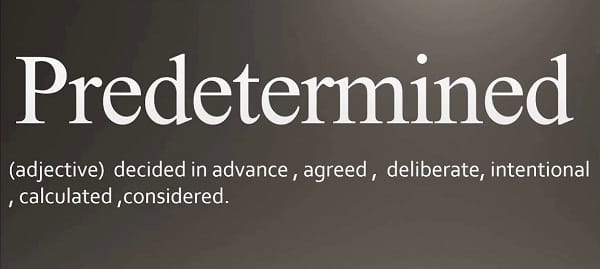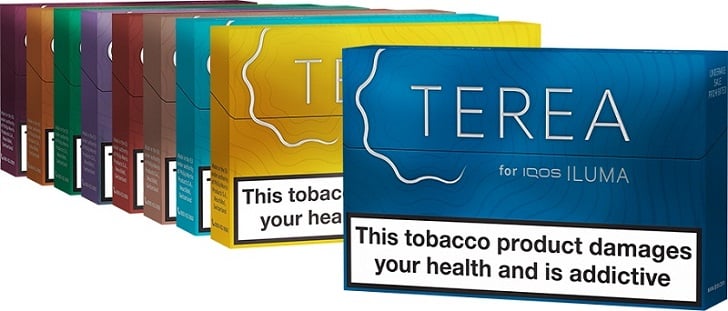
I’ve been interested in Heat not Burn products for a few years now, as you probably guessed if you’ve been keeping up to date with this blog, so if there’s anything about them in the media I tend to check it out just to see what’s being said. This is why I ended up watching Channel 4’s Dispatches: The Secrets Of Big Tobacco last night.
I’d been tipped off by an article in The Guardian that Dispatches was planning a programme on HnB – more specifically, on Philip Morris International and their goal of moving smokers onto safer alternatives. The article also dropped some pretty heavy hints about the angle the programme would take, hinting at “hypocrisy” by PMI and featuring plenty of quotes from Deborah Arnott of Action on Smoking and Health.
Anyway, I got out the popcorn and sat down to watch, and as I’d expected it wasn’t long before I was shouting at the screen. From start to finish the bias shone through. PMI responded very quickly with their own rebuttal of it, and I don’t want to simply repeat what they’ve already covered, so I’m going to sound off about some of my own gripes.
Fair play? No way!
Right, that bias. I doubt I’d got 30 seconds into Dispatches: The Secrets Of Big Tobacco when presenter Jane Moore referred to “so-called reduced risk products,” which has pretty clear implications. Right after this we got treated to a rehash of how the tobacco industry lied about the harms of smoking in the 1970s, which let Moore speculate that the development of HnB was just “another chapter of deceit.”
Obviously this was an annoyingly slanted introduction, but surely now someone from PMI would get a chance to respond with a more accurate explanation of their strategy to phase out cigarettes? Nope. Next we cut to Deborah Arnott, who delivered a predictable rant about the evils of PMI, profit-making companies and capitalism in general – exactly what you’d expect from someone whose closest approach to an actual real, productive job was two years as a graduate trainee at Triumph Motors back when Jim Callaghan was prime minister.
From Arnott’s sour, joyless visage we then cut to some lies about vaping – “More than a quarter of American high school students smoke e-cigarettes”, for example. Do I need to explain why this is bollocks? Well, for starters nobody “smokes” e-cigarettes. That stuff is vapour, not smoke. Secondly, a quarter of American high school students have tried the things. A small fraction of that number use them regularly.
Junk science for the win!

So, now PMI would get a chance to put their side of the story across? No. Next, Moore spoke to Swiss researcher Reto Auer, who’s analysed the vapour from iQOS and compared it to cigarette smoke. “There were the same toxic compounds,” he said, before adding, “in less quantity in the iQOS.” Well yes – in much “less quantity”. Orders of magnitude “less quantity” in fact. That’s OK though, because Professor Auer went on to assure us that “there is no safe minimum level” of some of these chemicals.
What this means is that Professor Auer knows nothing about basic toxicology and is talking complete dog toffee, because there’s a safe minimum level of anything. It doesn’t matter what it is – cyanide, arsenic, Novichok nerve agent, gamma radiation or even cigarette smoke; there’s always a level below which any tiny additional health hazard it might theoretically create is just lost in the background noise.
In fact Auer’s research was so sloppy that PMI felt it necessary to write to him and ask him to withdraw his results, and redo the experiments at an accredited laboratory and using validated methods. Wait, what? You mean he didn’t do that in the first place? Got it in one. Auer didn’t use either an accredited laboratory or valid methods. Even worse, when PMI asked him to do it properly he refused. It’s almost as if he’d engineered his research to give the result he wanted, isn’t it?
Obviously you wouldn’t expect PMI to approve of Auer’s work, seeing as he criticised their products, but it turns out they’re not the only ones who say his work is substandard. What Dispatches coyly called “UK and US public health organisations” – and for that you can probably read “Public Health England and the FDA” – won’t accept his conclusions either. They say his research is “not adequate.” So why did Dispatches: The Secrets Of Big Tobacco use him as their “expert” source? My guess is that it’s because he’s the only researcher who delivered the results they were looking for.
Jealousy isn’t a good look
PMI’s turn now, at last? No, back to Arnott. Moore asked Arnott why PMI are focusing on iQOS, and she went back to the anti-capitalist ranting. “Profitability!” she screeched. “They’ve made it hard to counterfeit!” What, and that’s a bad thing, suddenly?
Then Arnott’s real gripe emerged. Moore revealed that PMI had spoken to Kevin Barron, who at the time was a Labour MP with a strong track record of campaigning against smoking. Unlike many anti-smokers Barron is a pragmatist who cares more about results than ideology, so he’s always been clear that he would work with anyone who offered a solution to smoking-related disease.
And that’s exactly what PMI offered. They proposed a £1 billion fund, paid by the major tobacco companies, to help transition smokers away from cigarettes and onto safer products. In return they suggested scrapping some of the more absurd EU anti-vaping laws we’ve been stuck with, such as restrictions on advertising reduced-risk products and the idiotic limits on e-liquid strength and tank size.
This all seems perfectly reasonable to me – but not to darling Debs. “They’ve stolen our idea for an industry levy!” she wailed. It seems that collecting a billion pounds from the tobacco industry and using it to help smokers quit is a great idea if ASH do it, but evil beyond words if PMI do. More likely, Debs is just butthurt that PMI planned to spend the money on things that would actually help smokers, and not on lobbying to hand yet more powers – and taxpayers’ money – to ASH.
Sadly Barron’s tobacco bill – which included many of PMI’s suggestions – didn’t make it through parliament, because it could have made a huge difference to many smokers. We can only hope that now we’ve left the EU the government will gut the Tobacco Products Directive anyway, removing restrictions on advertising e-cigs and HnB as well as binning the stupid e-liquid limits.
Verdict: Biased and childish
As for Dispatches: The Secrets Of Big Tobacco, the last part of the program featured Moore visiting Indonesia to complain about PMI adverts being placed “in front of a school” – it was actually in front of a stall that sold cigarettes, funnily enough – and saying, “If (PMI) really wants to save lives, then surely the best way is to stop selling people cigarettes.”
This pretty much sums up the biased and childish approach Dispatches: The Secrets Of Big Tobacco took to an important public health issue. What PMI are trying to do is to offer smokers real alternatives that give the pleasure of smoking without most of the health risk. They’re in a strong position to do that; after all they know the technology, they know what their customers want, and they have the funding and global distribution network to get good products into smokers’ hands. But they need some time; they can’t wave a magic wand and get every smoker to switch to safer products overnight.
If PMI follow Moore’s “best way,” they’ll go out of business in a week. Hundreds of thousands of people will lose their jobs. Hundreds of millions more will see their pension funds collapse in value. And all the smokers will simply shrug and buy their cigarettes from RJ Reynolds, British American Tobacco or Imperial Brands instead. It’s a cretinous idea – which, I suppose, makes it a suitable closing line for a cretinous programme.










